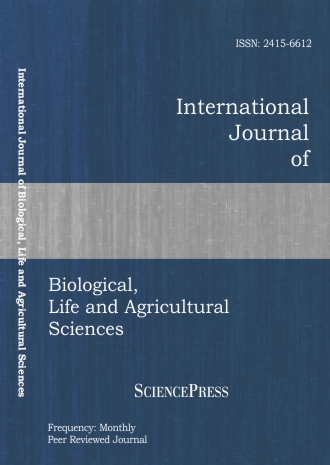
Scholarly
Volume:6, Issue: 10, 2012 Page No: 951 - 953
International Journal of Biological, Life and Agricultural Sciences
ISSN: 2415-6612
1044 Downloads
Laser Transmission through Vegetative Material
The dynamic speckle or biospeckle is an interference phenomenon generated at the reflection of a coherent light by an active surface or even by a particulate or living body surface. The above mentioned phenomenon gave scientific support to a method named biospeckle which has been employed to study seed viability, biological activity, tissue senescence, tissue water content, fruit bruising, etc. Since the above mentioned method is not invasive and yields numerical values, it can be considered for possible automation associated to several processes, including selection and sorting. Based on these preliminary considerations, this research work proposed to study the interaction of a laser beam with vegetative samples by measuring the incident light intensity and the transmitted light beam intensity at several vegetative slabs of varying thickness. Tests were carried on fifteen slices of apple tissue divided into three thickness groups, i.e., 4 mm, 5 mm, 18 mm and 22 mm. A diode laser beam of 10mW and 632 nm wavelength and a Samsung digital camera were employed to carry the tests. Outgoing images were analyzed by comparing the gray gradient of a fixed image column of each image to obtain a laser penetration scale into the tissue, according to the slice thickness.
Keywords:
References:
[1] Braga Jr., R. A. "Bio-Speckle": uma contribuição para o